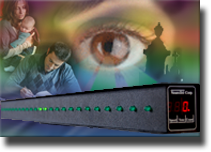Services
Individual Therapy
 Individual therapy involves one client and a therapist working together to help the client resolve some aspect of life. Sometimes, people are trying to recover from trauma or to heal past wounds. Sometimes they are not sure how to relate to their family members, partners, children or friends and come for guidance. Most times one of the main things people need when they come for individual therapy is to know if what they are experiencing is “normal” (and most times it is). People seek therapy to help them work through all kinds of issues, from sexuality and sexual orientation to resolving guilt about choices with aging parents and everything in between. Judy works with all her clients from a family systems perspective. This means that she tries to understand her clients as they are within their social and emotional context and not in isolation. Individual therapy can be useful for people of all ages and life stages.
Individual therapy involves one client and a therapist working together to help the client resolve some aspect of life. Sometimes, people are trying to recover from trauma or to heal past wounds. Sometimes they are not sure how to relate to their family members, partners, children or friends and come for guidance. Most times one of the main things people need when they come for individual therapy is to know if what they are experiencing is “normal” (and most times it is). People seek therapy to help them work through all kinds of issues, from sexuality and sexual orientation to resolving guilt about choices with aging parents and everything in between. Judy works with all her clients from a family systems perspective. This means that she tries to understand her clients as they are within their social and emotional context and not in isolation. Individual therapy can be useful for people of all ages and life stages.
Couples Therapy
 Couples’ therapy aims to help partners reconnect with each other and learn more effective ways of resolving differences and working together as a team. Most relationships go through rough times; learning to turn toward each other is a good start to resolving them. Judy has been trained in Emotionally Focused Therapy and John Gottman techniques. Some of the issues that might be addressed in couples’ counselling include; affairs, sexuality, work/home balance, conflict resolution, parenting, dealing with family and friends, communication, finances, anger management, addictions and intimacy. According the John Gottman, 70% of what couple’s disagree on will never change. The couples that thrive are the ones who learn to accept their differences and make compromises.
Couples’ therapy aims to help partners reconnect with each other and learn more effective ways of resolving differences and working together as a team. Most relationships go through rough times; learning to turn toward each other is a good start to resolving them. Judy has been trained in Emotionally Focused Therapy and John Gottman techniques. Some of the issues that might be addressed in couples’ counselling include; affairs, sexuality, work/home balance, conflict resolution, parenting, dealing with family and friends, communication, finances, anger management, addictions and intimacy. According the John Gottman, 70% of what couple’s disagree on will never change. The couples that thrive are the ones who learn to accept their differences and make compromises.
Family Therapy
 Family therapy is the process of bringing family members together to help resolve issues, build trust, enhance communication and change entrenched patterns. From a family systems perspective all people are family members. Blended families may have particular need of therapy to help members come to peace and acceptance with each other. Judy makes use of thorough family histories to help identify family patterns, which often shed light on why things are the way they are. That is the first step in changing them.
Family therapy is the process of bringing family members together to help resolve issues, build trust, enhance communication and change entrenched patterns. From a family systems perspective all people are family members. Blended families may have particular need of therapy to help members come to peace and acceptance with each other. Judy makes use of thorough family histories to help identify family patterns, which often shed light on why things are the way they are. That is the first step in changing them.
Postpartum Depression
 Judy has a particular interest and expertise in working with women experiencing difficulties during the childbearing years. Postpartum depression is a rather frightening diagnosis frequently given to a woman who is feeling stressed, overwhelmed and tearful after having a baby. Judy believes that in many cases women are exhausted, overwhelmed, stressed and afraid because parenthood is full of all of these things. Judy’s approach is to normalize this experience as much as possible and to help women get in touch with their competence and learn ways to look after themselves. Of course sometimes childbearing does precipitate a clinical depression, in which case, supportive psychotherapy and medication work together to help women feel better.
Judy has a particular interest and expertise in working with women experiencing difficulties during the childbearing years. Postpartum depression is a rather frightening diagnosis frequently given to a woman who is feeling stressed, overwhelmed and tearful after having a baby. Judy believes that in many cases women are exhausted, overwhelmed, stressed and afraid because parenthood is full of all of these things. Judy’s approach is to normalize this experience as much as possible and to help women get in touch with their competence and learn ways to look after themselves. Of course sometimes childbearing does precipitate a clinical depression, in which case, supportive psychotherapy and medication work together to help women feel better.
Parenting Support
 Parenting is probably the biggest job any of us will do with the least amount of preparation and training. With the bookstores full of parenting books and advice it’s often almost impossible to decide what’s the best way to raise our children. Parenting support aims to help parents decide what their family values and expectations are and how to make them a reality. Judy has training and experience in behavior management, logical consequences as well as optimal parenting strategies. Judy feels most comfortable with an attachment theory perspective that aims to give children a foundation where they feel good about themselves and about the other people in their lives. This is commonly referred to as a secure attachment style.
Parenting is probably the biggest job any of us will do with the least amount of preparation and training. With the bookstores full of parenting books and advice it’s often almost impossible to decide what’s the best way to raise our children. Parenting support aims to help parents decide what their family values and expectations are and how to make them a reality. Judy has training and experience in behavior management, logical consequences as well as optimal parenting strategies. Judy feels most comfortable with an attachment theory perspective that aims to give children a foundation where they feel good about themselves and about the other people in their lives. This is commonly referred to as a secure attachment style.
Eye Movement Desensitization and Reprocessing (EMDR)
 EMDR is an unusual kind of therapy, which uses visual, audio or tactile stimulation to help people resolve trauma, ease anxiety and phobias and increase positive beliefs about themselves. The theory is that when bad things happen to us we sometimes develop negative messages about ourselves, almost blaming ourselves for what happened. Many times people know in their heads that this isn’t true but in their hearts or gut still hold onto the negative message. By stimulating both hemispheres of the brain while paying attention to both our thoughts and feelings EMDR can be very effective in healing.
EMDR is an unusual kind of therapy, which uses visual, audio or tactile stimulation to help people resolve trauma, ease anxiety and phobias and increase positive beliefs about themselves. The theory is that when bad things happen to us we sometimes develop negative messages about ourselves, almost blaming ourselves for what happened. Many times people know in their heads that this isn’t true but in their hearts or gut still hold onto the negative message. By stimulating both hemispheres of the brain while paying attention to both our thoughts and feelings EMDR can be very effective in healing.
